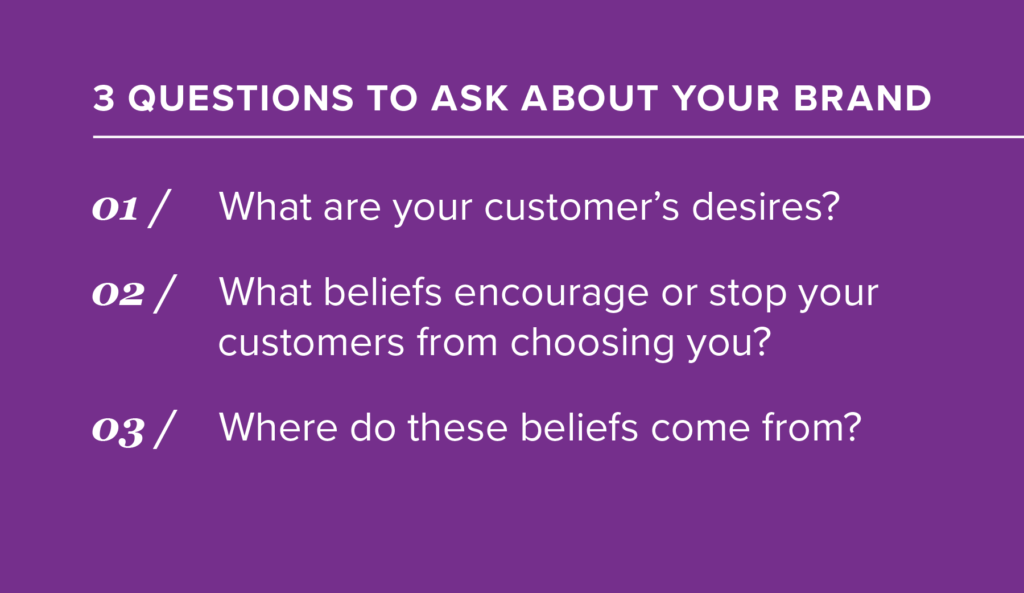Any business owner, and most professional marketers, will tell you that there is a never-ending conversation about brand strategy. Whether it’s about your own business or a client, or if you are a B2B or B2C company, there is always a discussion about brand strategy and how it can help you accomplish different goals.
But how well do we actually know what brand strategy is? The truth is that as marketers we often see business owners and even other marketers lose focus on what the main goal of a brand strategy is.
Brand strategy is like a game of checkers. In theory, it’s simple; you move up, down, or to the side, but the reality is that there are about 500 quintillion combinations that can be made during a game of checkers. The same goes for brand strategy.
In theory, it sounds simple, you come up with a game plan to achieve a goal like raising brand awareness, increasing leads, gaining new clients, etc. But like checkers, achieving brand strategy goals becomes quickly complicated.
That’s why the experts here at Deksia want to give you an easy-to-understand rundown on what it actually means to create a brand strategy and how it should affect your business.
What Should Your Brand Strategy Look Like?
Like we mentioned before, brand strategy is the game plan that you and your team come up with using your brand to accomplish specific goals. And as complicated as this might seem there are a few things you need to keep in mind when coming up with your brand strategy.
For starters, ask yourself the following questions: 
Brands are a reflection of the people and customer’s experience that make up the brand, which is why the most successful brands embody human characteristics. “Humanizing” your brand will allow you to connect with your audience in a deeper and more meaningful way.
Identifying what human characteristics make up your brand should always be one of the first few steps your company takes to better understand what your brand really represents. For example, Nike embodies strength, resilience, and perseverance. Disney embodies hope, dreams, and believing in the impossible.
Brands are able to use their human characteristics to create magnetic personalities that result in unified and powerful marketing.
One big mistake we see many companies make is jumping the gun on their marketing efforts, spending time and money on one-off tactics that have no consistent foundation in their messaging or aesthetic, and with no clearly defined goals. It’s marketing chaos.
Learn about who your brand is by thinking about who your customers are, why they connect with you, and how you connect with them. This kind of thinking helps you focus on relatability and connects with your audience beyond a simple transactional relationship.
What Should Your Brand Strategy Not Look Like?
Knowing what your brand strategy should look like is important, but it’s equally important to understand what your brand strategy shouldn’t look like.
To make things even simpler, let’s make a simple distinction between two concepts in the marketing world that seem interchangeable but definitely aren’t: Strategy vs. Tactics.
Oftentimes, you will run into someone trying to sell you a tactic for you and your team to try out and call it strategy. So what’s wrong with a tactic? By definition, tactics are a one-off piece of marketing, like a single ad. Many companies and even marketing teams create tactics without ever first having a foundational strategy.
You can create a bunch of one-off tactics, but without a strategy, an overarching foundation, most of the time the tactics don’t have any unity, and they fail to reach the ultimate goals of your brand.
One of the main ingredients in marketing strategy is repetition, and we don’t mean repetition in messaging but rather a repetition in the course of actions. Come up with tactics that align with your brand strategy, test them out, identify the problem, discuss it, solve it, and repeat. This kind of repetition is key for a successful brand strategy.
Learn more about what our experts have to say about repetition in brand strategy.
Why Should You Care About Brand Strategy?
All of this being said, why should you care about brand strategy? In theory, paying for ads, posting on social media, and even writing some content pieces here and there should accomplish something. The truth is that if you don’t have a strong brand strategy that builds your brand identity, you will never be able to tug on the heartstrings that drive people to believe in a brand and buy from a business like yours.
When you understand who you are as a brand, your audience will not only also understand you as a brand but also understand what you can do for them and why only you can do that for them. We see this on a daily basis with some of the greatest brands out there.
From Apple to Amazon and even Coca-Cola, there is a human element to them that connects their audience to a certain emotion associated with them. Whether that is strength and resilience, efficiency and cutting edge technology, or opening a little bit of happiness. These brands have great offerings to provide to their audience but also they meet a desire that only that brand can solve.
Branding comes into play here because no matter if it’s a product or service, customers need to understand how their problem is going to be solved, and who is going to solve it. The “who” is the brand. Within the who is also the “why”, why a brand is better or different than another.
We Practice what We Preach.
Just like we recommend for our brands looking to elevate their marketing, we have our own archetype and follow our own cycle of purposeful repetition for our brand strategy.
We engineer marketing strategies for ourselves and for our clients that incorporate distinct brand personalities, with messaging and tactics that reflect them.
Plus, we use powerful data to make sure our tactics are running how they’re supposed to. We believe in the power of repetition, and know that the long-term strategy can include patience.
In fact, our 12-month marketing strategies are designed to be repeatable. The foundation of them stays consistent, but we constantly look for ways to improve them.
Contact us to learn more about our process and how we can make your brand’s marketing strategy work more effectively!



